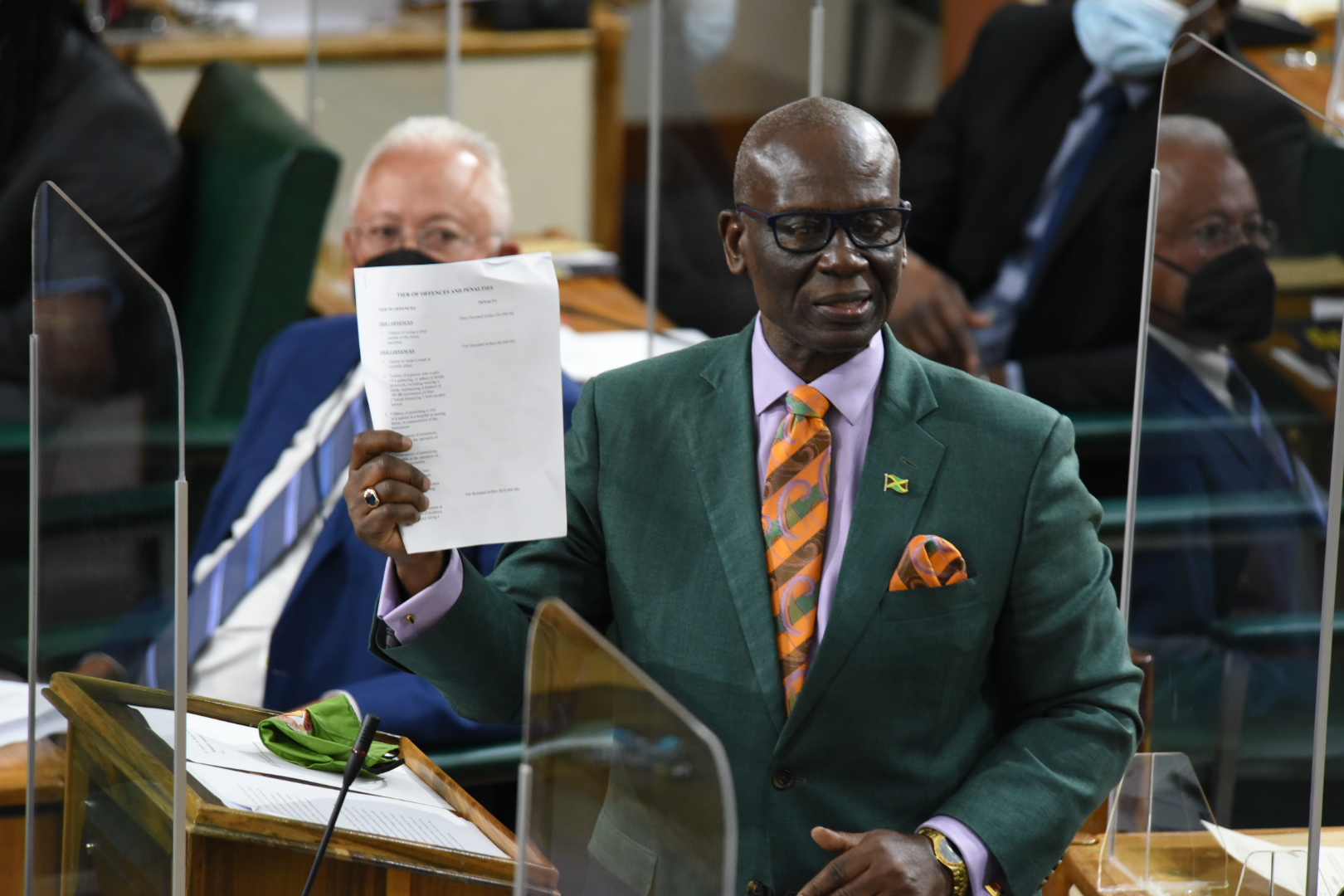House Amends Disaster Risk Management Act To Introduce Penalties
By: , March 24, 2021The Full Story
The House of Representatives on Tuesday (March 23) passed legislation that will introduce a specific enforceable system of sanctions against persons who breach the public health protocols.
This includes fixed penalties ranging from $3,000 to $500,000.
The Bill, entitled, The Disaster Risk Management (Amendment) Act, was passed with two amendments.
Since March 10, 2020, the Government has employed the Disaster Risk Management Act as the primary legislative tool to manage the coronavirus (COVID-19) pandemic.
In piloting the legislation, Minister of Local Government and Rural Development, Hon. Desmond McKenzie, said that over this period, many lessons have been learnt about the efficiency of this law in relation to the Government’s priority of returning the country to full productivity and social activity.
“One of these lessons is an unfortunate one. We have learnt that while many of our resident citizens, visiting Jamaicans and overseas guests respect the Orders issued under the Act to safeguard public health, there are still way too many who continue to demonstrate total disregard,” Mr. McKenzie said.
As part of measures to increase compliance, Clause 52 of the Act has been amended to include a structure of offences and penalties, including fixed penalties in relation to the Orders made under the Act.
“The clause specifies the procedure to be applied when a constable deems that an offence has been committed. This includes the serving of a formal notice, which is, essentially, a ticket that specifies the details surrounding the offence. The notice also offers the chance of paying a fixed penalty for the offence within a specified period of time, failing which the notice becomes a summons to appear in court to answer to the charge,” Mr. McKenzie said.
He noted that these provisions reflect fairness, as a minimum of 30 days must pass between the date the notice is issued, and the date that the fixed penalty is to be paid.
Additionally, anyone who has to face the courts for failing to pay the penalty will not be liable for conviction for the alleged offence if the fixed penalty is paid before a final judgment of the case is delivered.
“In every instance, the fines are to be paid at any Collectorate or through the website of Tax Administration Jamaica. The Form of the Notice is also displayed in the Schedule,” Mr. McKenzie said.
Clause 52 also contains the Sixth Schedule, which addresses the list of fixed penalties for breaches.
The Minister said this list has 10 levels, or tiers of fixed penalties, which range from $3,000 for first-level offences to $500,000 for offences at the 10th level. There are 40 offences specified that attract these fixed penalties.
Failure to wear a mask in public, not keeping the six-foot physical distancing rule, or breaching the protocols governing public transportation will attract a $5,000 fine.
In addition, if persons fail to stay in an abode or place of residence during a curfew, they could face a fine of $10,000. If a gym is operated outside of the time specified or small outdoor events are held in breach of the Order, the fixed penalty is $20,000.
Also, any person who normally resides in Jamaica and on returning to the island from overseas fails or refuses to remain in quarantine, or to obey any other direction or order, is liable for a fine of $25,000. If a person who does not normally reside in Jamaica, or who is a tourist, refuses to stay in the Resilient Corridor as required, the penalty is $30,000.
Furthermore, any person who has COVID-19 and refuses to stay in quarantine, is subject to a fine of $50,000, and the same amount applies to any employer who does not comply with the specified workplace requirements.
Minister McKenzie also informed that for the offence of conducting funerals, burials, weddings or any other worship services in contravention of any Orders in force, the fixed penalty is $100,000.
Anyone who operates a hotel or resort that is not licensed under the Tourist Board Act, certified by the Tourism Product Development Company, or located within the Resilient Corridors could face a penalty of $500,000.
This fine also applies to any hotel or resort, nightclub or amusement park that breaches the COVID-19 protocols, and to any nightclub, amusement park or water attraction that is operated when it is ordered closed.
In the meantime, Mr. McKenzie said these amendments to the Disaster Risk Management Act are clear and they have been crafted in pursuit of clear objectives.
He added that the circumstances in which the Act can be invoked have been expanded, to ensure that the Government has, at all times, the legislative authority within which it can respond swiftly to challenges and secure the interests of the population.

